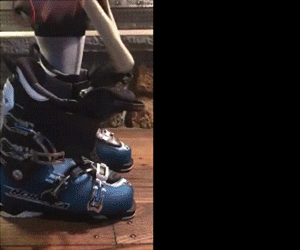Hi everyone,
I lived in Summit County (9200') for 15 years, and moved to Denver a couple of years ago. In past year and a half, I've been having increasing trouble when i (frequently) go up to the mountains. The real issue is sleep (due to pounding heart, hypoxia, etc) and (I think?) fluid retention....I see that my 02 levels go down to about 91 or so when i'm up there, and they're 99 in Denver. I wake up exhauted and sometimes can't even get out to ski.
I got an 02 concentrator but I don't think it helped much.
I get headachy, too...
But when I slept in Glenwood Springs, for example, to ski Aspen--I slept ok, and heart racing less, breathing less angsty...I think because it's similar elevation to Denver!
So...doc called in some Diamox, and i'm up in Summit right now, and...is this something I could take every time i come up to the mountains? I also am fairly senstive to meds, and I think i read that a half (or quarter?) dose of 65 mg helped some...Has anyone had this experience? I'll be up here for another five days, haven't taken any yet, but thinking about a dose tonight, and trying to stay on it the next few days/nights to see if it works.
Let me know what you think, and thanks for any advice/anecdotal wisdom!
I lived in Summit County (9200') for 15 years, and moved to Denver a couple of years ago. In past year and a half, I've been having increasing trouble when i (frequently) go up to the mountains. The real issue is sleep (due to pounding heart, hypoxia, etc) and (I think?) fluid retention....I see that my 02 levels go down to about 91 or so when i'm up there, and they're 99 in Denver. I wake up exhauted and sometimes can't even get out to ski.
I got an 02 concentrator but I don't think it helped much.
I get headachy, too...
But when I slept in Glenwood Springs, for example, to ski Aspen--I slept ok, and heart racing less, breathing less angsty...I think because it's similar elevation to Denver!
So...doc called in some Diamox, and i'm up in Summit right now, and...is this something I could take every time i come up to the mountains? I also am fairly senstive to meds, and I think i read that a half (or quarter?) dose of 65 mg helped some...Has anyone had this experience? I'll be up here for another five days, haven't taken any yet, but thinking about a dose tonight, and trying to stay on it the next few days/nights to see if it works.
Let me know what you think, and thanks for any advice/anecdotal wisdom!



